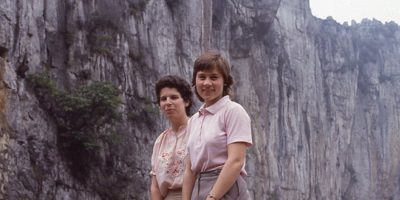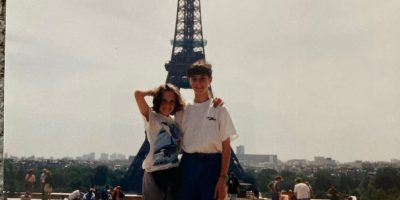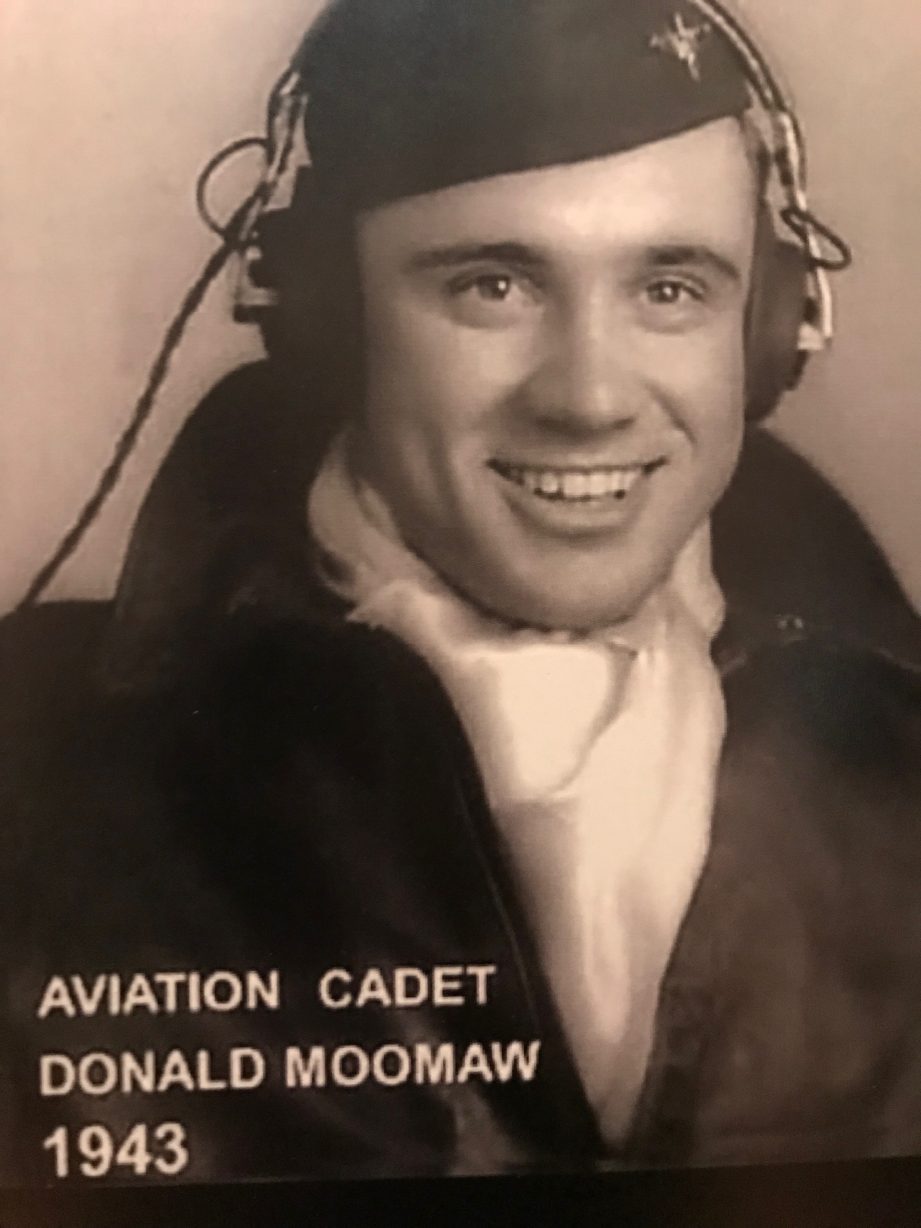
By Andrew Jenner, publisher
In the summer of 2015, days before I moved away to Brazil, I took my son and went to say goodbye to my grandparents. He was 1. They were past 90. They saved him packs of cookies from the retirement home cafeteria, and I let him eat all he could because it made both parties so happy. After a hug and goodbye, as I closed their apartment door, I wondered whether it might be the last time I’d see either of them. They seemed healthy enough, but past 90 is past 90. And as it turned out, Grandpa had less than two months left.
***
When I was younger, my uncle once speculated aloud that Grandpa might be the luckiest man alive. He’d survived World War II and Korea. He got hit by a car and got struck by lightning as a young man and lived to tell his grandkids about all of it. I remember the stories well, like the one about how the B-26 he flew while he was in Europe went down in poor weather right after the war – he wasn’t flying it then, obviously. It’s now scattered across the Alps in a million pieces.
During one mission, a piece of shrapnel mortally wounded his tail gunner. Another time, another piece of shrapnel sliced through an oil line so perfectly that it crimped it shut. Had the fluid leaked out, Grandpa said, it would have been curtains. But instead, that just-so hit from a German shell joined the trillion other twists of fate that led to my being born, the second grandchild of an exceptionally lucky Ohio farm boy. He brought that crimped-off piece of hydraulic line home with him and chuckled when he showed it to me and my cousins.
***
Grandpa’s luck held out through the very end. One day, my mom later told me, he was his usual self; the next, he was unusually tired. They took him to the hospital, where the doctors sent out word to his kids: it’s looking like his time has come. His kids came quickly and were there together with him as he slid quietly from deep sleep to death. If we got to script these things, I’d pick something similar.
I was 5,000 miles away when this happened, reeling as I adjusted to life overseas. It was a holiday weekend in Brazil, and I was on my first excursion out of the big city, up in the mountains covered by bizarre South American pine trees that could have been designed by Dr. Seuss. A few days earlier, I’d gotten word that Grandpa was sick, though they weren’t yet sure how bad it was. When I came back from a hike to find a bunch of missed calls from my mom, it was clear. I still hadn’t set up my phone quite right (never quite figuring things out became a motif during this period of my life), and when I tried to call her back, all I got were automated Portuguese messages cheerfully informing me that reaching my family in this time of need was não possível.
***
These were fitting circumstances, I suppose. The 33 years Grandpa and I shared on Earth were spent far apart, in many senses. Except for the very end, when my mom finally wrangled him and Grandma to the retirement home in Virginia, we lived distant from one another. In addition, thanks to fate and chance and other people’s decisions made before I was even born, I was set on a trajectory that pointed me away from Grandpa. Not many kids raised in the Mennonite Church have bomber pilots for grandfathers. While our culture on the whole regards Grandpa as a war hero, I grew up being taught that true war heroism meant conscientious objection to it.
Grandpa wore his uniform for a visit to the World War II Memorial in Washington soon after it opened. Strangers kept coming up to shake his hand and thank him for his service. I hovered in the background, shaggy-haired and just out of college, about to start paying back the special loans I’d to take out because I was ineligible for the usual federal government stuff. That’s because when I was still a teenager, I’d decided not to register for the Selective Service. When Grandpa was that age, he was dropping bombs on the Germans.
Fifteen years later, more comfortable with contradiction and bored with absolutist views, I find myself wondering if Grandpa may have felt some sort of confused, conflicted pride in what I was doing with my life. Could it have been similar to the confused, conflicted pride I have for his? But it’s too late ask him now, and even if it wasn’t, let’s be honest: it’s the kind of thing that would be way too awkward to ask an old man I never really knew all that well.
***
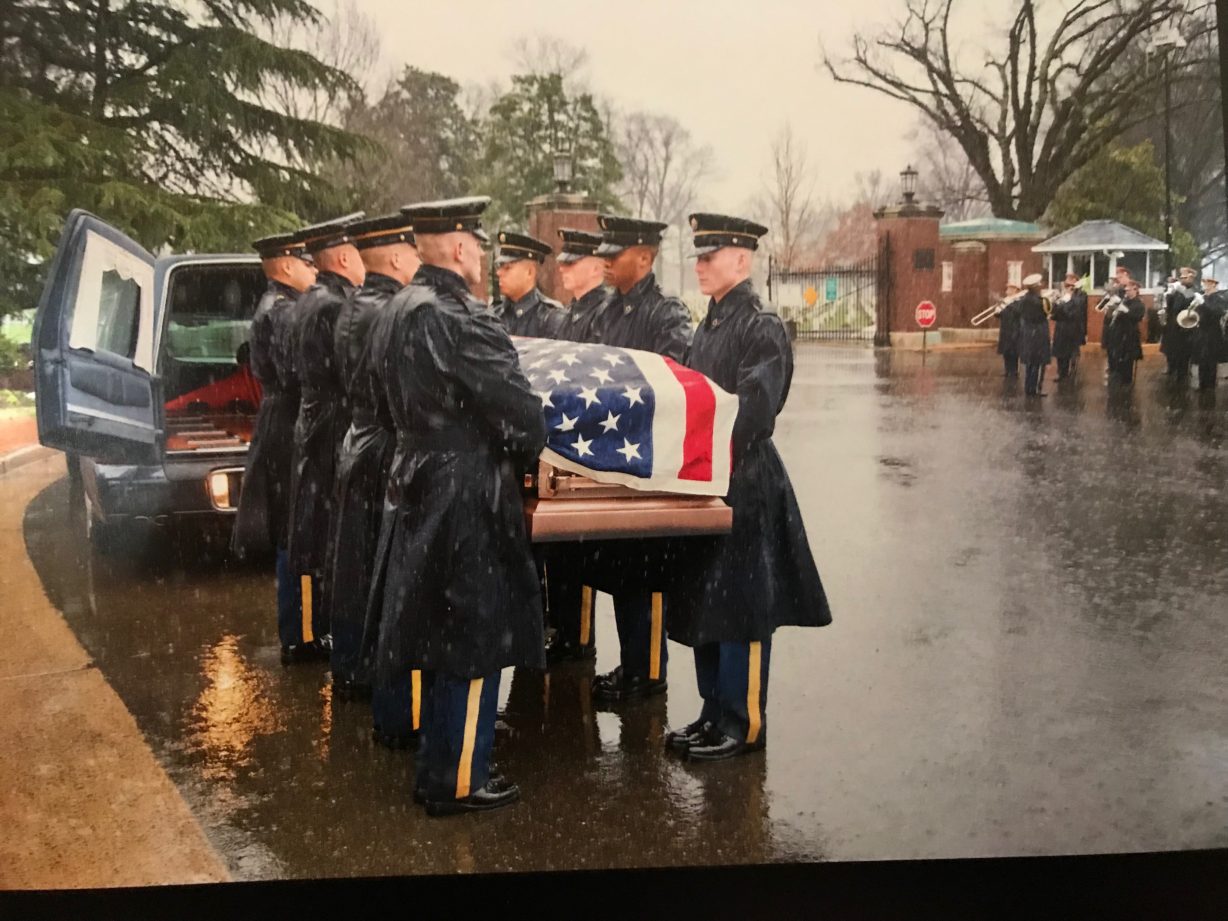
Because he made colonel, Grandpa earned a special ceremony for his burial at Arlington on a miserable day the following February. As his casket arrived at the chapel, a color guard stood at attention in the driving rain, and a group of young Marines brought him in with stiff precision. After some words were said, they took the flag-draped casket back out again. A band marched with the caisson that wheeled Grandpa away, and as the rain and fat snowflakes continued to fall, they fired off a salute and presented Grandma with the folded flag.
It rained so much that his freshly-dug grave filled with water. They tried but failed to pump it out, so we didn’t get to see him lowered down. By the time that happened, I’d already flown back in Brazil, where it was blazing hot Carnaval season, and the whole quick trip back for the funeral felt as if I’d only dreamed it.
***
Earlier this year, I made my first trip back to the gravesite. In the time since Grandpa’s funeral, Grandma had also died and been buried in the same plot, her name etched on the other side of the white stone. As far as I can tell, there’s no rhyme or reason to where someone is buried there, and clustered around my grandparents’ grave in Section 60 of Arlington National Cemetery are young and old, veterans of different wars and victims of many things: old age, training accidents, enemy fire in distant lands.
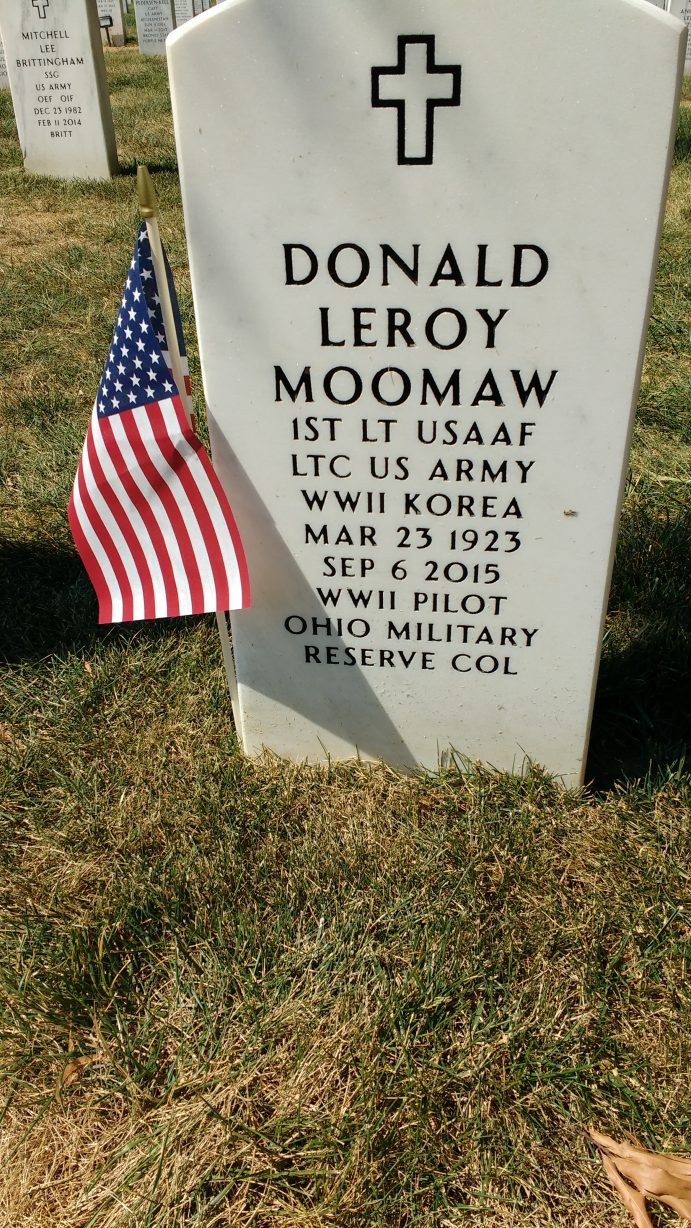
After a few minutes with my grandparents, I began to stray, reading the other headstones. It was a busy day, crowded almost, people coming and going, and it took me a while to notice that here and there, some were frozen in place. A couple younger than my parents were holding serene vigil in folding chairs, contemplating what, judging by the dates etched before them, must have been their child’s grave. Not far from them, a despairing woman sat hunched over in the grass, clutching a bouquet like a cudgel, as if she might try to bludgeon tragedy into un-happening.
***
If you’ve ever done much sightseeing around the world, you’ve probably had the experience of visiting other people’s holy places, where you adopt an unusual reverence not because you believe in that same sacred thing but because they do. Or perhaps you’ve gone to church with your parents on Christmas Eve because what’s the harm – and besides, it makes them happy. On these High Holy Days of American religion, I’ve started feeling like I’m watching from the balcony, the grandson of a righteous man.
Journalism is changing, and that’s why The Citizen is here. We’re independent. We’re local. We pay our contributors, and the money you give goes directly to the reporting. No overhead. No printing costs. Just facts, stories and context. Thanks for your support.


